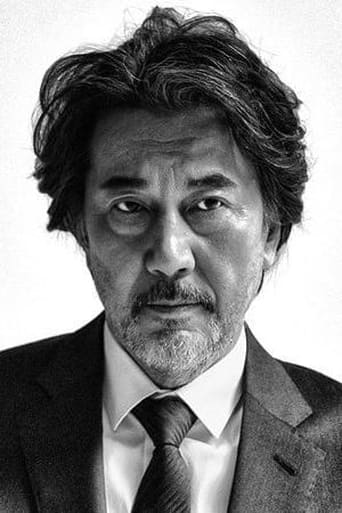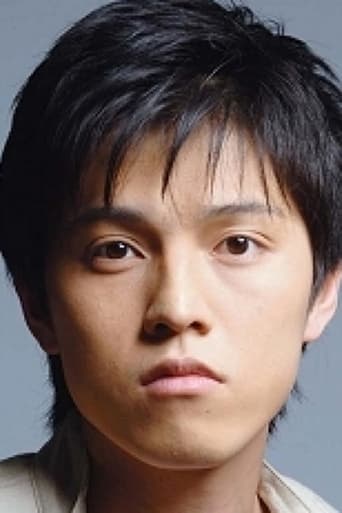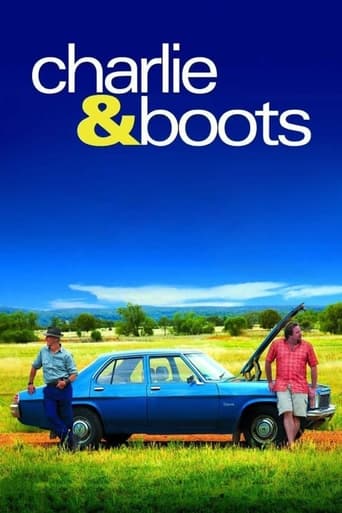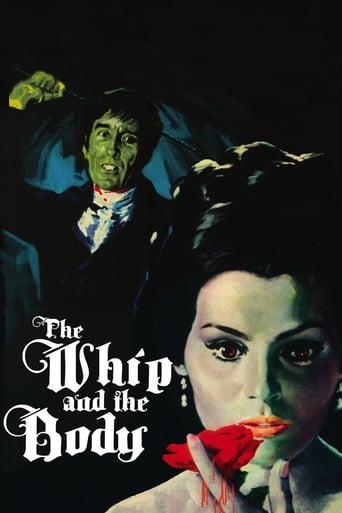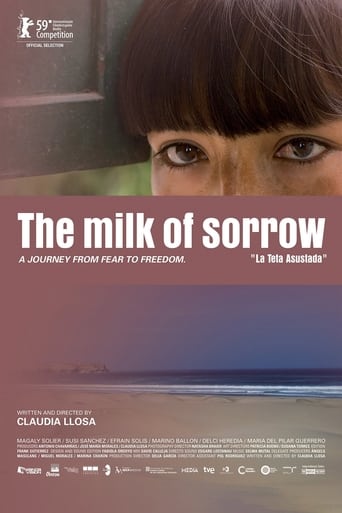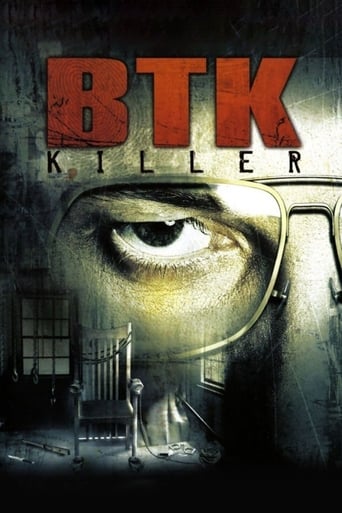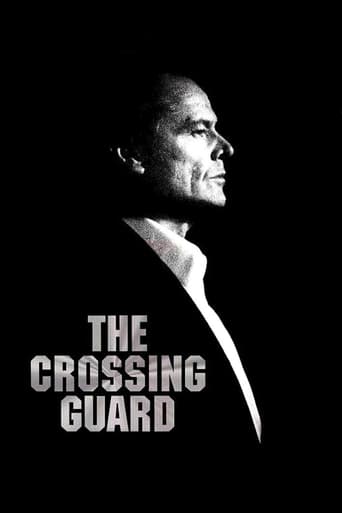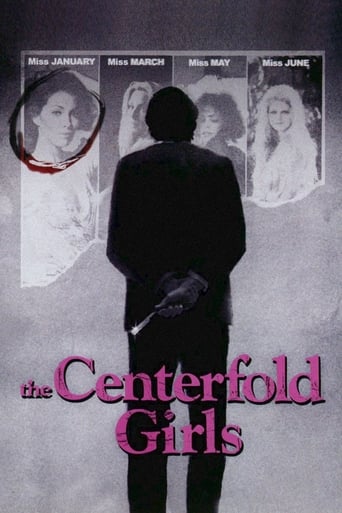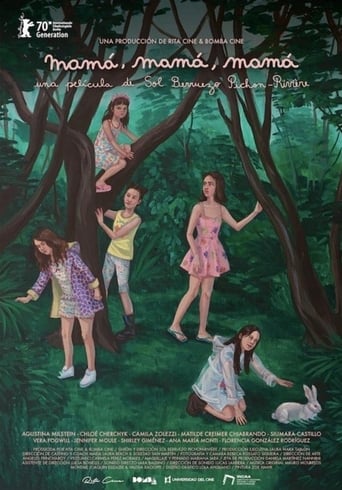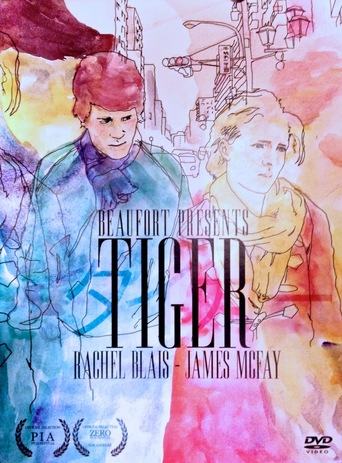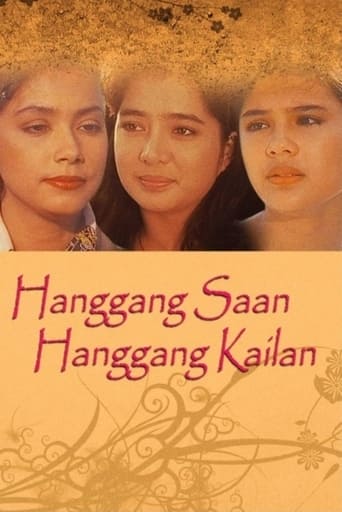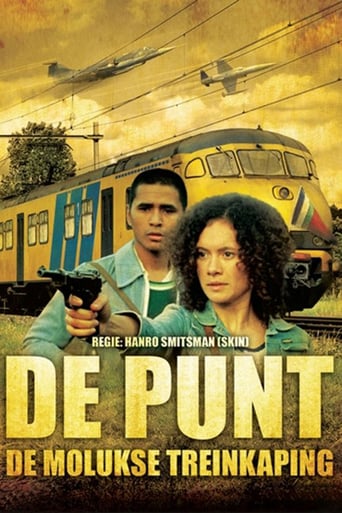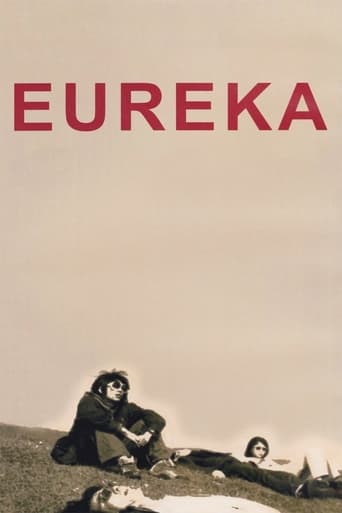
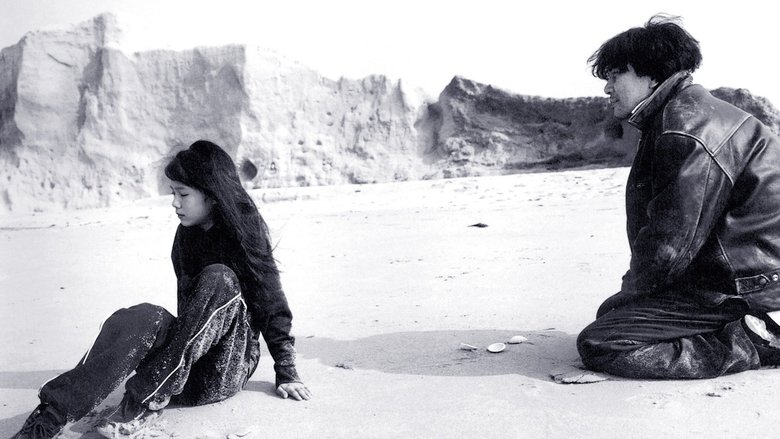
Eureka (2000)
In rural Japan, the survivors of a tragedy converge and attempt to overcome their damaged selves, all while a serial killer is on the loose.
Watch Trailer
Cast


Similar titles
Reviews
Shinji Aoyama's Eureka concerns three people branded by a traumatic event (a busjack) who then try to cope with their issues by reliving the path with a new bus. The protagonists are two siblings, Naoki and Kazue, mute ever since the accident, and the bus driver Makoto. Eureka is a fascinating but exhausting experience - it lasts over 3,5 hours.It is shot in a sepia tone for its entirety, except for the very final shot which is in color. In the end, Makoto and Kazue overcome their scarred past and start a new life. The scene where Kazue throws away some shells named after the most influential people in her life (thus making way for rebirth) is followed by an enlightenment of sorts, both in the terms of transition from sepia to color and from traumatic stress to a better life. This may be why this movie is called Eureka. The flow of the movie is very meditative and memorable. There are many moments of pure silence and of little to no action. It moves very slow, but has a hypnotic ring to it and you can't help but feel drawn to it after being confused in the beginning. Aoyama uses multiple repetitive or cyclical patterns all throughout; the seesaw-resembling thing by the window constantly going up and down, Makoto turning the lamp on and off continuously, or the scene where he drives around and around on his bike with Naoki. It all seems very realistic and like a window to someone's life, and in the end makes you feel a lot more for the characters, not to mention the acting is excellent as well. The performances are just incredible.Aoyama's movie contains many panoramic shots which stay still for a long time and follow the characters around, but there are also many recurring motifs like bottles of water or the starry decoration hanging by the rear bus window. Some shots are unforgettable, like the one at the beginning, when the busjacker points the gun at the children with his dying breath. The occasional scenes with strong dramatic value are made even more powerful by the movie's slow pace. The music isn't always there, but when it is, it fits the scenes beautifully with its celestial, atmospheric quality.Eureka does go on for a bit too long, but it is truly one of the most unique cinematic experiences you'll encounter. It's a film well worth watching if you have time to kill or are into slow-paced movies.9,5/10
Hailed as a masterpiece by some, and a near one by others, I liked it quite a bit, and never felt bored in spite of it's nearly 4 hour running time. I was quite moved – to the point of tears - by the end. It looks and feels like no other movie I've seen, shot in a shifting sepia tone, with very little dialogue, and long silent takes. It's an intimate epic. Sort of a Japanese version of a Terrence Malick film. A young brother and sister, and a bus driver are the only survivors of a random bus-jacking by a madman. The three retreat from the world. But two years later the bus driver seeks out the brother and sister – living alone and mute despite their youth – and the long, slow process of healing begins. As much as I liked a lot of it, certain plot twists felt clunky or heavy handed, as did some of the dialogue. A movie so based in unspoken emotion loses something when the themes suddenly become too literal, in word or action. But, those are things that might bother me less on a second viewing, when I was more prepared for this unique, odd, challenging film.
Every once in a while I have a cinematic experience so original and compelling that it dominates the days that follow to the virtual exclusion of all else. I have had such feelings twice in recent months from Japanese cinema, first with Koreeda's wondrous "After Life" and now with Aoyama's "Eureka". Not every film that affects me in this way is a masterpiece like "After Life". Some like "The Piano Teacher" melodramatically rely on their power to disturb. I suppose "Eureka" comes somewhere between, lacking perhaps the formal perfection of a recent masterwork such as the Vietnamese "At the Height of the Summer" but enveloping me in a way that I found far more engrossing. How else to explain two viewings on consecutive days of a film of enormous length (3.5 hours) that I was never once tempted to fast forward! The answer must lie partly in the mesmerizing power of the story it tells, partly with the involvement I feel with the characters and partly in the way the director has created a highly personal vision of a complete world. Basically "Eureka" is about the traumas of three survivors of a bus hijacking, the driver and a teenaged brother and sister pair of passengers, that has resulted in the massacre of all the others involved. After a prelude depicting the cathartic event that triggered their emotion turmoil we home into their lives two years further on. The bus driver, unable to find any resolution to his mental and physical state through involvement with his own family, seeks out the youngsters whose family life has been ruined with a view to expiating his guilt as a survivor by helping them in whatever way he can. Eventually he buys a bus on which they can embark on a journey possibly to escape what has happened to them, a journey with most of the odds stacked against it as he is in failing health, a parasitic intruder has to be taken on board in the form of the teenagers' basically unsympathetic cousin and their travels take place against a disturbing background of several killings of young women. Thus after nearly two hours into "Eureka" we are experiencing a road movie with a destination so hazily defined it is hard to believe it will ever be reached. Only two of the protagonists make it to a conclusion where the soft almost sepia-toned photography suddenly bursts into colour suggesting a transforming redemption. On a first viewing I was puzzled by the denouement of the serial killings which seemed psychologically if not physiologically outlandish but I have come to accept this as one tragic consequence of trauma in a masterly work that so successfully fuses elements of great films as diverse as "L'Avventura" and "Kings of the Road" with something of the singleminded gaze of that greatest of living directors, Theo Angelopoulos.
i saw this movie at 10pm at the brattle in boston. i missed my damn subway bus and i was stranded for the night. i didn't want to leave after sitting through the first 3 or so hours. i was waiting for some great ending, which never really happened. i started off mesmerized by the cinematography, but after the hours passed the plot just lost my interest. i owned jim o'rourke's eureka before seeing the movie and it was a pleasant surprise to here the title song in the movie. i read somewhere that the movie grew out of sonic youth's classic album daydream nation, i don't know. anyway it's definitely still worth seeing it.


